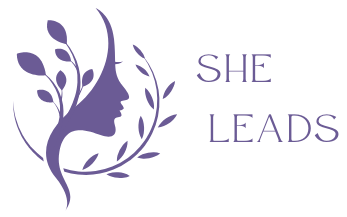Empowering women is not just a moral imperative; it is a catalyst for sustainable development. Throughout my career in West Africa, I have witnessed firsthand the transformative power of women’s empowerment. When women are given the tools and opportunities to succeed, they not only improve their own lives but also contribute to the well-being of their families and communities. This multifaceted approach to empowerment spans education, economic independence, health, leadership, systemic change, and policy advocacy, each playing a critical role in driving progress.
The Foundation: Education
One of the most effective ways to empower women is through education. Education opens doors to new opportunities and provides women with the knowledge and skills they need to thrive. In our community initiatives, we have established educational programs that cater specifically to women, from basic literacy classes to advanced vocational training. These programs have enabled countless women to gain employment, start their own businesses, and become financially independent.
Take, for instance, Fatoumata, a participant in our literacy program. When she joined, she could barely read or write. Today, she runs a successful tailoring business, employs five other women, and is a respected leader in her community. Education did not just transform her life; it transformed the lives of those around her.
Economic Empowerment: Financial Independence and Beyond
Economic empowerment is another crucial aspect of women’s empowerment. When women have control over their own finances, they gain greater autonomy and can make decisions that benefit their families. Microfinance programs have been particularly successful in this regard. By providing small loans and financial training, we help women start and grow their own businesses. These enterprises not only generate income but also create jobs and stimulate local economies.
Consider our microfinance program in rural Mali. Women who once struggled to make ends meet are now entrepreneurs, running businesses ranging from small retail shops to agricultural enterprises. These women not only provide for their families but also contribute to the economic growth of their communities. The ripple effect of financial independence is profound, fostering resilience and stability at the grassroots level.
Health and Well-being: A Holistic Approach
Health and well-being are also integral to women’s empowerment. Access to healthcare, family planning, and mental health services allows women to lead healthier and more fulfilling lives. In our initiatives, we prioritize holistic approaches that address the physical, emotional, and social aspects of women’s health. For instance, our maternal health programs provide comprehensive care to expectant mothers, ensuring safe pregnancies and healthy babies.
Our holistic health initiatives have demonstrated significant impacts. In communities where we operate, maternal mortality rates have dropped, and women report higher levels of well-being. These outcomes are not just statistics; they represent real, meaningful improvements in the quality of life for women and their families.
Leadership Development: Creating Role Models
Leadership development is another key component of women’s empowerment. By nurturing female leaders, we create role models who can inspire and guide others. In our programs, we offer leadership training and mentorship opportunities that equip women with the confidence and skills they need to take on leadership roles in their communities. These women become advocates for change, driving progress on issues such as gender equality, education, and economic development.
Leadership development transforms individuals and communities alike. Women like Mariam, who transitioned from a participant in our vocational training program to a community leader, now advocate for better educational resources and healthcare facilities. Her journey exemplifies how leadership can amplify the impact of empowerment initiatives.
Systemic Change: Challenging Norms
However, empowering women requires more than just targeted programs; it also demands systemic change. Societal norms and gender biases must be challenged and transformed. This involves engaging men and boys in the conversation and encouraging them to become allies in the fight for gender equality. In our community outreach efforts, we emphasize the importance of shared responsibility and collective action in achieving lasting change.
One of our successful initiatives involves gender-sensitivity training for men and boys. By addressing ingrained biases and fostering mutual respect, we create environments where women’s empowerment can thrive. Changing mindsets is a slow process, but the results are evident: communities that embrace gender equality see improved social cohesion and economic performance.
Policy Advocacy: Influencing Change
Moreover, policy advocacy plays a vital role in advancing women’s empowerment. By influencing policies and legislation, we can create an enabling environment that supports women’s rights and opportunities. Our advocacy efforts focus on issues such as equal pay, reproductive rights, and protection against gender-based violence. Through collaboration with policymakers, we strive to ensure that women’s voices are heard and their needs are addressed.
Our advocacy work has led to tangible changes in policy. In several regions, we have successfully lobbied for the implementation of laws that protect women from domestic violence and ensure equal access to education and employment. These legislative changes are crucial for sustaining the progress made through grassroots initiatives.
Conclusion: Investing in the Future
In conclusion, women’s empowerment is a multifaceted and ongoing journey that requires concerted efforts at individual, community, and systemic levels. It is a powerful driver of sustainable development, leading to improved health, economic growth, and social progress. By investing in women, we invest in a brighter future for all. The work is challenging, but the rewards are immense. Empowering women transforms lives, communities, and ultimately, the world.
Amina AbDiallo is a seasoned community organizer and advocate for women’s empowerment in West Africa. With a background in social work and over two decades of experience, she has led numerous initiatives focused on education, economic independence, and health for women and youth. Amina is renowned for her expertise in project management, fundraising, and policy advocacy, driving systemic change and sustainable development in her communities.


